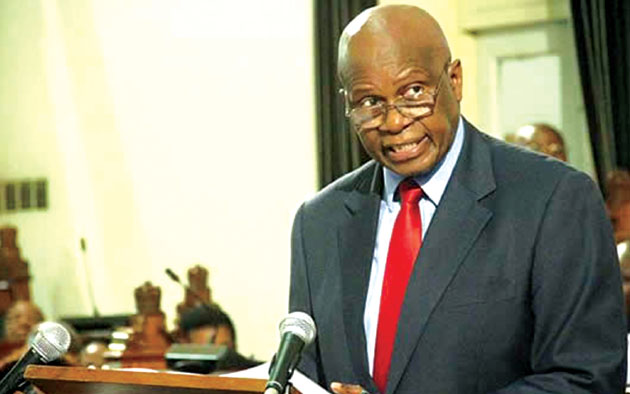
eBusiness Weekly

The Zimbabwe economy faces the real risk of plunging into a recession this year if companies continue struggling to get foreign currency, according to findings by a UK-based economic research firm, BMI.
But it strongly contends that the new dispensation has brightened the chances of Zimbabwe obtaining concessional funding from global lenders, as well as the reintroduction of local currency, scrapped in 2009.
The country last received funding from multi-lateral lenders such as the International Monetary Fund and the World Bank at the turn of the millennium, after defaulting on earlier loans due to economic meltdown.
Zimbabwe also dumped its local currency, for a basket of foreign currencies, due to hyperinflation following nearly a decade of economic instability.
While BMI’s report pointed to a number of downside risks, it also identified listless upside potential’s positive impact, especially driven by political change that saw President Mnangagwa rise to the helm last year.
BMI says after 37 years in power, ex-president Mugabe’s resignation heralded beginning of a new era in Zimbabwe, not only symbolically, but also in terms of prospects for meaningful economic reform.
However, fears abound crippling shortage of hard currency amid low industrial production, foreign investment, lack of external lines of credit, low levels of exports earnings, a high import bill and rampant externalisation.
Local companies are battling to secure enough foreign currency to fund operations, acquire raw materials and equipment under a priority system that allocates resources to importers in order of importance.
To that end, key areas such as fuels, pharmaceuticals, machinery and critical raw materials receive priority in allocation of foreign currency by the Reserve Bank to avoid knee-jerk impact on the economy.
This has resulted in a number of economic agents, those not deemed critical, struggling to obtain foreign currency to fund operations. But even for critical areas, companies cannot get what they need.
To plug the gaps, the central bank has struck a $1,5 billion Afreximbank backed financing facilities to capitalize the country’s nostros. At that point, the external payments backlog had gone past half a billion.
Finance and Economic Planning Minister Patrick Chinamasa projected in his 2018 Budget that the economy will grow by 4,5 percent this year. But BMI says forex shortage is a threat to these prospects.
Minister Chinamasa anticipates the growth to be driven by momentum under the new dispensation, agriculture and firmer global metal prices. Half of Zimbabwe’s exports come from mineral exports.
As such, economic growth is expected to receive a major boost next year following the appointment in November last year of a pro-reform President. The change is expected to drive positive investor sentiment.
Since inauguration, President Mnangagwa has put at the top of his priority list, the need to re-engage erstwhile western foes, global lenders, foreign investment and export driven economic growth and reforming law bearing on investments to drive sustainable economic turnaround.
“While the appointment of a more reform-minded president will offer a boost to investor sentiment, this will not feed through into headline growth figures until 2019 when the country’s political outlook is more certain.”
The end of the former president Mugabe’s rule in November last year family is said to bode well for a more sustainable monetary policy going forward.
“Greater scope for re-engagement with the international community, particularly with concessional lenders, increases the likelihood of a successful re-introduction of a local currency,” BMI said.
According to BMI, the ongoing shortage of hard currency in Zimbabwe will see the country’s current account deficit narrow further in 2018.
Further, a more optimistic outlook for foreign financing under the country’s new reform-minded President, will see import growth tick up from 2019, limiting further consolidation of Zimbabwe’s current account.



